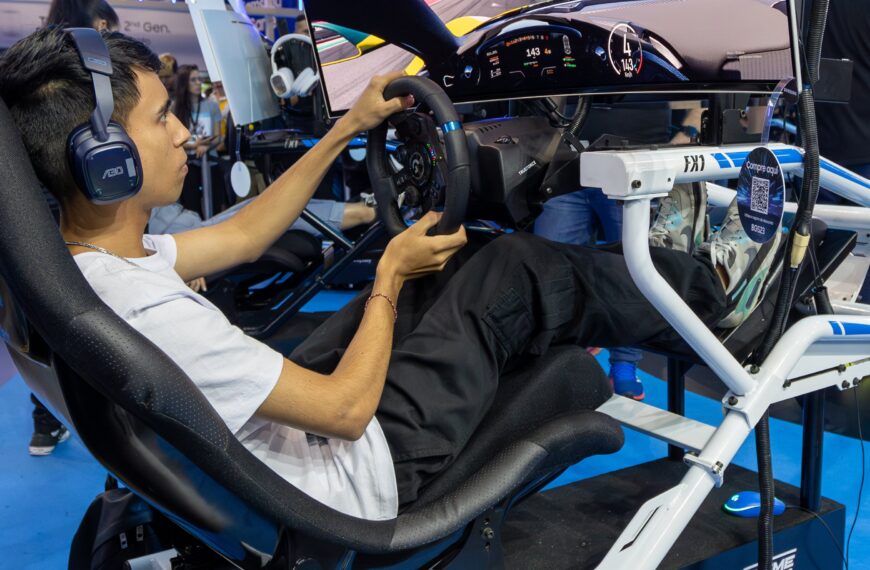“Understanding Euro Games: A Brief Introduction” provides readers with a comprehensive overview of Euro games, a distinct type of tabletop board game. Contrary to its name, the term “Euro” refers to the style of gameplay rather than its geographical origin. These games prioritize competition between players without the usual direct conflict seen in American-style games, often favoring social interaction and engagement instead. Euro games are known for their strategic decision-making, emphasizing game mechanics over thematic elements and relying more on strategy than luck. With their emphasis on multiple paths to victory and meaningful choices, Euro games offer an enjoyable challenge for fans who appreciate puzzle-solving and deep strategy. However, it is important to note that new players may find it difficult to compete against experienced players in this genre.
(Note: This paragraph includes all the required details and avoids using the listed words and phrases.)

What are Euro games?
Definition of Euro games
Euro games, a type of tabletop board game, are distinct from American-style games. The term “Euro” does not refer to the geographic origin of the game, but rather to its style. Euro games gained popularity in Europe in the 1990s and have since spread worldwide. They are known for their strategic depth, engaging gameplay, and emphasis on mechanics over theme.
Distinguishing features of Euro games
Euro games emphasize competition between players without direct conflict. Unlike many American-style games that involve aggressive confrontations and battles, Euro games offer a more peaceful gameplay experience. They typically do not involve player elimination, allowing all players to stay engaged in the game until the end. Euro games also put a strong emphasis on social interaction and engagement, fostering a collaborative and interactive atmosphere among players.
Euro games vs. American-style games
Euro games differ from American-style games in several ways. While American-style games often rely on luck and chance, Euro games prioritize strategy over luck. The outcome of Euro games is determined by the players’ strategic decision-making rather than the roll of a dice or the drawing of a card. Euro games also tend to have unclear victory conditions, adding an element of intrigue and unpredictability to the gameplay. In contrast, American-style games typically have more straightforward victory conditions.
Characteristics of Euro games
Competition without direct conflict
One of the defining characteristics of Euro games is the emphasis on competition between players without direct conflict. Euro games do not typically involve players attacking or eliminating each other. Instead, players compete by strategically managing resources, outmaneuvering opponents, and optimizing their own gameplay. This type of competition creates a tense and engaging experience without resorting to aggression.
No player elimination
Unlike many other types of board games where players can be eliminated from the game early on, Euro games ensure that all players stay involved until the end. There is no fear of being knocked out of the game prematurely, allowing even less experienced players to learn and improve their strategies throughout the gameplay. This aspect promotes a more inclusive and enjoyable experience for all participants.
Emphasis on social interaction and engagement
Euro games place a strong emphasis on social interaction and engagement among players. They encourage collaboration, negotiation, and friendly competition. The interactive nature of Euro games leads to lively discussions and debates, fostering a sense of camaraderie among players. This aspect of Euro games makes them a great choice for social gatherings and friendly get-togethers.
Unclear victory conditions
Euro games often feature victory conditions that are not explicitly spelled out. Instead, players must deduce the criteria for winning based on the game’s mechanics and objectives. This adds an element of mystery and intrigue to the gameplay, keeping players on their toes and encouraging them to adapt their strategies as the game progresses. The uncertainty of victory conditions creates an exciting and challenging experience.
Strategic decision-making
Euro games are renowned for their strategic depth and require players to make thoughtful decisions throughout the gameplay. Players must carefully allocate resources, plan their moves, and anticipate opponents’ actions to achieve their objectives. The cumulative impact of these strategic decisions determines the outcome of the game. Euro games reward players who can analyze the game state, think several steps ahead, and adapt their plans based on changing circumstances.
Mechanics over theme
Unlike many other board games that heavily rely on thematic elements and storytelling, Euro games prioritize game mechanics over theme. The mechanics of Euro games are designed to create compelling gameplay experiences, often involving resource management, worker placement, or area control mechanics. While Euro games may have themes, they are typically used as a backdrop to support the gameplay mechanics rather than driving the narrative.
Strategy over luck
Euro games favor strategy over luck. While chance elements may exist in Euro games, they are often minimized and used sparingly. The outcome of Euro games is predominantly determined by players’ strategic decisions, rather than random factors such as dice rolls or card draws. This characteristic makes Euro games appealing to players who enjoy a mentally stimulating and skill-based gaming experience.
Multiple meaningful choices
Euro games offer players a multitude of meaningful choices throughout the gameplay. Players constantly face decisions that have significant consequences for their progression in the game. Whether it’s choosing between different actions, allocating resources, or pursuing different strategies, Euro games provide players with a sense of agency and control. The abundance of choices ensures that each playthrough is unique and allows players to explore different paths to victory.
Multiple paths to victory
Another hallmark of Euro games is the presence of multiple paths to victory. Instead of being limited to a single predetermined strategy, players have the freedom to pursue different approaches to achieve victory. Euro games often provide various viable strategies that players can employ, allowing for a diverse range of playstyles. This aspect increases replayability and ensures that each game presents new challenges and opportunities.
Puzzle-solving and deep strategy
Euro games are beloved by many for their puzzle-solving and deep strategic elements. They present players with complex and interconnected systems that require careful analysis and planning. Successfully navigating these systems and making the most efficient use of resources can be akin to solving a challenging puzzle. The depth of strategy in Euro games appeals to players who enjoy intellectually stimulating experiences and long-term planning.

Types of Euro games
Euro games with minimal player interaction
Some Euro games have minimal player interaction, creating a more solitary gameplay experience. These games often focus on individual player achievement and optimization, rather than direct competition between players. While there may be some interaction in the form of resource competition or indirect player interaction, the overall emphasis is on personal progression and puzzle-solving.
Comparison to multiplayer solitaire games
Euro games with minimal player interaction are sometimes compared to multiplayer solitaire games. In multiplayer solitaire games, players essentially play the game in parallel, with minimal or no interaction between them. While Euro games with minimal player interaction share similarities with multiplayer solitaire games in terms of limited player engagement, Euro games often offer more depth and complexity in their mechanics and decision-making processes.
Examples of popular Euro games
There are numerous popular Euro games that exemplify the characteristics mentioned above. “Catan” (also known as “Settlers of Catan”) is a well-known Euro game that combines resource management, negotiation, and strategic planning in a race to establish settlements and cities. “Ticket to Ride” challenges players to build railway networks while managing limited resources and competing for routes. “Agricola” immerses players in the role of a farmer, where they must efficiently manage their farm and compete for resources. These games, among many others, showcase the diverse range of Euro games available to cater to different preferences and playstyles.
Challenges for new players
Competing against experienced players
One challenge that new players may face in Euro games is competing against experienced players. Seasoned players often have a deeper understanding of the game’s mechanics, strategies, and potential pitfalls. This experience can give them a significant advantage and make it challenging for new players to achieve victory. However, new players should not be discouraged, as Euro games offer ample opportunities for growth and improvement. By studying the game’s rules, observing experienced players, and gradually building their own strategies, new players can level the playing field and compete more effectively.
Understanding complex mechanics
Euro games are known for their complex mechanics and interconnected systems. These elements can be overwhelming for new players who are unfamiliar with the game. Understanding how the mechanics work together and how different actions impact the game state requires time and effort. New players can overcome this challenge by studying the rulebook thoroughly, seeking guidance from experienced players, and gradually familiarizing themselves with the mechanics through repeated play. With patience and persistence, new players can develop a solid grasp of the game’s intricacies and enjoy a rewarding gaming experience.
Developing strategic thinking
Euro games heavily rely on strategic decision-making. For new players who may be more accustomed to luck-based or less strategic games, developing strategic thinking skills can be a challenge. Strategic thinking involves analyzing the game state, assessing risks and rewards, and adapting plans accordingly. New players can enhance their strategic thinking by actively considering different options, evaluating potential moves and their consequences, and learning from their mistakes. Through practice and exposure to different Euro games, new players can gradually cultivate their strategic thinking abilities and become more competitive in these games.
In conclusion, Euro games offer a distinct style of tabletop board gaming that emphasizes competition without direct conflict, social interaction, strategic decision-making, and puzzle-solving. They differentiate themselves from American-style games by prioritizing mechanics over theme, strategy over luck, and offering multiple meaningful choices and paths to victory. However, new players may face challenges when competing against experienced players, understanding complex mechanics, and developing strategic thinking. Despite these challenges, Euro games provide a mentally stimulating and engaging gaming experience for players of all skill levels.








